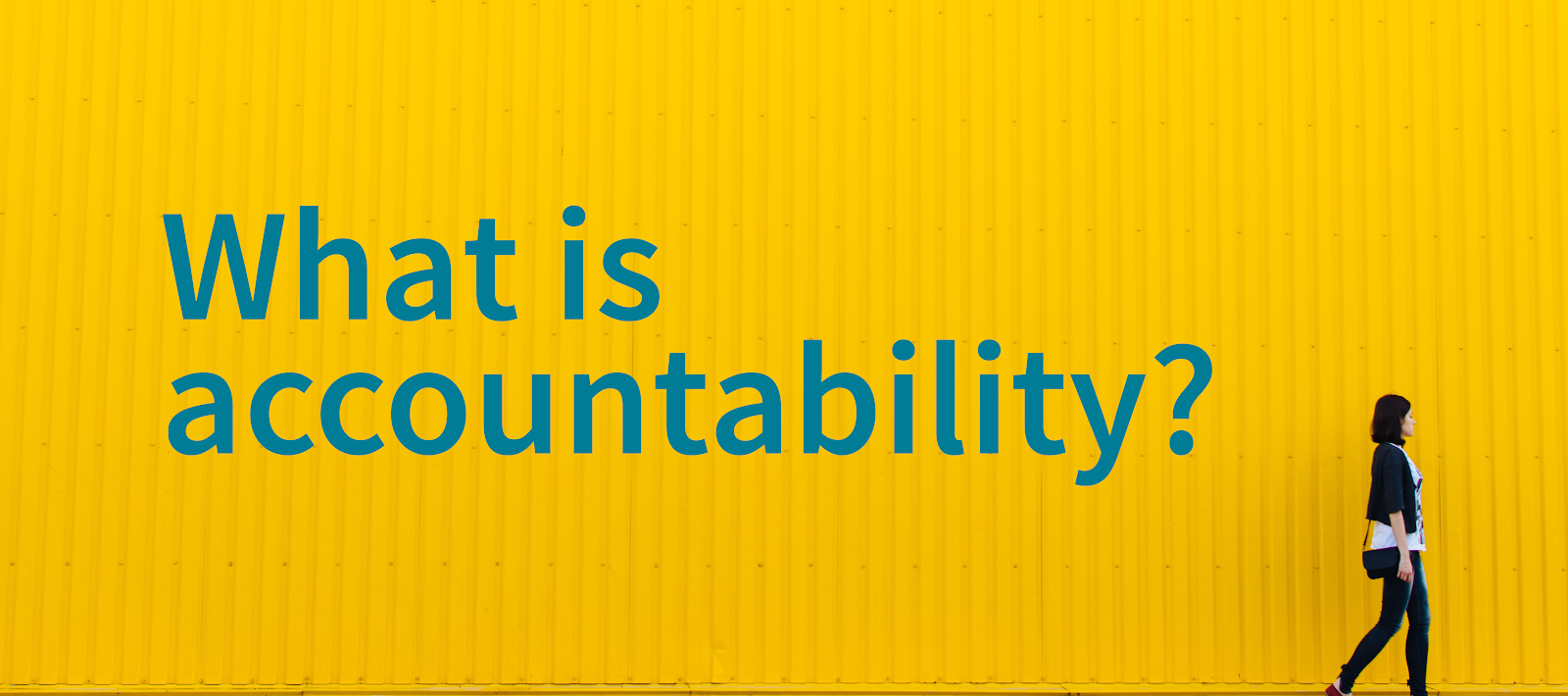Highlight:
- Synthetics can be better
- Mislabeling = Unfair tarnishing?
- Accountability with a human face
- Partnership or Exploitation?
- And on it goes…
- TAI Spotlight: Is It Accountability Without a Promise?
Synthetics can be better

Image by: Adobe Stock via Forbes
No, we are not making a push for polyester over cotton, but instead getting excited at the potential of synthetic data i.e. real world data funneled through a noise-adding algorithm to construct a new data set that allows for the same statistical inferences to be drawn from the true data without being able to identify individuals. Anjana Ahuja explains how synthetic data and the concept of “differential privacy” might resolve concerns over truly anonymizing data and free up more datasets for analysis, not least for good governance and anti-corruption purposes.
Of course, it is not only the handling and analysis that matters, but also the decision making over what data gets collected and by whom. Louise Lief reminds us that there is still a lot to be done to assure data justice and calls on philanthropy to get more sensitive and insistent on empowering communities in relation with researchers.
Mislabeling = Unfair tarnishing?
Consumers worry when labels are misleading. It’s easier to verify in physical supply chains, but what about in the world of good governance? Are we too ready to stick the transparency and accountability label on a project? Last year saw some useful new evidence emerge around the impacts of information provision, some of it raising important awkward questions. In the Weekly, we flagged calls from Jonathan Fox and others on the need for careful interpretation risks getting lost in easy headlines. Yet, when is an accountability project not an accountability project? Derek Thorne digs in and argues that we should be much more careful in applying the accountability appellation. It is merited when there is a form of promise involved against which people can assess delivery.
Accountability with a human face

Photo Credit: The Official Journal Blog
In Nigeria, Abdulwarees Solanke applauds the new federal treasury open portal and calls on the government to give transparency and accountability “a human face” by empowering citizens to use the portal to track projects. He also wants such measures extended to subnational levels of government.
In neighboring Guinea, another launch, this time of the Women in Mining (WIM) Guinea Index prototype to support transparency and better representation of women in Guinea extractive industry. Interested in seeing how open governance can birth better reforms in the extractive industry. Explore how countries that are members of the EITI and the Open Government Partnership can work together to carry out significance reforms to achieve greater extractive transparency. Meanwhile, the EITI board applauds Indonesia’s meaningful progress in implementing the EITI Standard and calls on Angola to join the EITI in the wake of the Luanda Leaks scandal.
Also, motivated in part by seeking EITI compliance, Myanmar’s Directive on Disclosure of Beneficial Ownership Information came into effect last month. However, Thompson Chau points to confusion over the thresholds and who can request access to the info given data availability is limited to “competent authorities.” Perhaps this will become a basis for future litigation. For those groups pushing for their right to information (and other rights), Nani Jansen Reventlow outlines strategic steps for thinking about strategic litigation as a tool to drive accountability.
Transparency International calls for prosecutions of executives from the Airbus bribery scandal and wonders why there is no mechanism for countries impacted to get a share of the record-breaking Airbus settlement (in contrast to some precedents under the US Foreign Corrupt Practices Act).
Of course, the press plays a vital role in assuring such scandals see the light of day. Wondering how journalism and press freedom will change in 2020? New report from Reuters Institute for the Study of Journalism signals increasing regulation of the internet, attempts to re-establish trust in journalism and a closer connection with audiences. Also find answers on the use of AI in the newsroom in the report.
Partnership or Exploitation?
A significant portion of international grants go through international NGOs. Certainly, that is the case for TAI donor members and their transparency and accountability portfolios. One key assumption is that those INGOs will work with local partners? Yet what do we know of how those relationships play out in practice? Ruth Levine sets out five important questions that funders might want to ask to gauge and reimagine those international-local dynamics.
The Engine Room plans to help strengthen civil society this year through some learning questions: How can we mobilize local civil societies to work more effectively on issues connected to digital systems? And how can we help less tech savvy activists distinguish between impactful and overhyped tech solutions?
Also, it’s strategy season (including for TAI itself) and you may want to check out Accountability Lab’s strategic plan as Blair Glencorse shares lesson on where they fell short and what the new strategy means going forward. Expect some useful insights on the realities of strengthening and empowering local partners.
And on it goes…
While the OECD no doubt breathed a sigh of relief that the prospect of a multilateral deal on digital tax is still on, Ruth Mason believes these tussles reveal just how out of date the international tax system is. Lack of trust is driving a wedge – for once Washington and Beijing aligned in resisting taxes they fear will be discriminatory towards their national corporations, while Europe and others fear a global tax regime will water down reforms too far. Eyes now turn to the UK whether it will still launch its digital tax in April.
As a backdrop to the policy debates is the question of whether the tax and accountancy professions have caught up and found ways to accurately value data. Michel Girard questions whether they have. His suggestion? Better framing and definition of usage of data. Categorizing data and creating tax brackets based on accurate data valuation appears to be one next step to fairer tax governance.
Curious to know what’s driving international tax justice? Michael Vaughan has answers on how civil society advocacy around tax justice waxed and waned in the UK and Australia since the 2008 global financial crisis. With just ten years to go to achieving the Sustainable Development Goals, ODI tax experts discuss the future of tax development and reform including Sam Sharp’s call to get more political in terms of tax support, building on the research undertaken with TAI last year.
Speaking of the SDGs, read the outcome of the first dialogue leading up to the UN’s 75th Anniversary. Meanwhile, Penny Mordaunt advises DFID to take a strategic lead from the Foreign and Commonwealth office. Regardless of how the bureaucratic structures shake out, one can be assured that pressure to know what monies are spent and on what will stay prominent. What does UK aid transparency look like? Paul Currion reflects on testing aid transparency platforms and suggests that while words matter, getting hung up on transparency definitions is less useful than focusing on different utilities for transparency.
Finally, sticking with transparency, don’t miss the latest Global Go To Think Tank Index Report for the top transparency and governance think tanks.
Registered yet?

Don’t miss the Accountability Console webinar organized by Accountability Counsel, in partnership with TAI, on February 27th, from 11am-12:15pm EST (8am-9:15am PT / 4pm-5:15pm UK). Register today to get in-depth detail on the Console, how to navigate it, and to discuss how it can best reinforce other tools and approaches of groups fighting for accountability, both funders and their grantees.
TAI Spotlight: Is it accountability without a promise?
Is it accountability without a promise? | Transparency and Accountability Initiative
When is an accountability project not an accountability project? Derek Thorne of Integrity Action makes a strong case on the way we apply the “accountability” appellation. According to Derek, “the very concept of accountability seems inseparable from the concept of a promise. For if we are not holding someone to account for a promise they made – be it precise, vague, implicit, or otherwise – what exactly are we holding them to account for?”
The hard work of hope | Ford Foundation
How do we move forward during the year ahead as we tackle inequality today? Ford Foundation President, Darren Walker in his annual reflection calls on all of us to embrace urgency, to step up, and to sacrifice privilege and power in 2020. “In ordinary times, hope is rare. But in these extraordinary times, hope is radical,” says Walker, who was recently awarded the inaugural Vanguard Award for Philanthropy.
We depend on well-led and well-managed grantees| Hewlett Foundation
Daniel Stid, the Director of the Foundation’s Madison Initiative, writes on the impact of strong leadership and management in nonprofits, especially in helping grantees bridge organization’s vision.
Sundance Institute collaborates with Luminate on six new projects | Luminate
Luminate and Sundance Institute jointly announced a fund to provide non-recoupable grants to independent artists working across documentary, narrative, episodic, and emerging media whose work display a strong potential for social and cultural impact. “These captivating and inspiring films give life to important social issues and tell their stories in ways we hope will engage and activate audiences,” said Nishant Lalwani, Managing Director at Luminate.
$8.1 Million in grants to advance local justice system reform| MacArthur Foundation
The Foundation announced an additional $8.1 million funding to support Safety and Justice Challenge’s work of in five counties building on their work to reduce overincarceration and address racial and ethnic disparities in local criminal justice systems.
Open Society Fellows developing approaches to counter economic inequality |Open Society Foundations
Sixteen Open Society Fellows will receive project support and living stipends up to $100,000 for one year, to work on a collaborative project that aims to tackle economic inequality.
CALL
Job postings at International Budget Partnership (M&E positions too) – Ongoing
Job postings at Ford Foundation – Ongoing
Job postings at Luminate – Ongoing
BetterTogether Challenge for innovators – Ongoing
Democracy Fund: Sr. Associate, Strategy & Learning – Ongoing
From Open to Inclusive Government: Global Innovate and Learn grant – February 14, 2020
Funding opportunity for fostering safety and resiliency for CSOs in MENA – Feb 28, 2020
Co-Impact systems change grants (round three) – March 31, 2020
Call for suggestions on Humanitarian and Development Data Forum agenda – May 2020
Proposal Submission for the 2020 Summer Evaluation Institute – June 7-10, 2020
Amartya Sen Essay Contest 2020: Illicit financial flows – August 31, 2020
CALENDAR
Feedback+San Juan: Listening Reimagined – February 26-28, 2020
The Impacts of Civic Tech Conference (TICTeC) – March 24 – 25, 2020 (Reykjavik, Iceland)
Register for the 2020 OECD Global Anti-Corruption & Integrity Forum – 25-26 March 2020 (Paris, France)
EGAP Learning Days workshop – March 30-April 3, 2020 (Addis Ababa, Ethiopia)
Frontiers of Social Innovation: People, Power & Resources: The Redistribution Wave – 12-14 May 2020 (Stanford University, California, USA)
Transparency International: 19th International Anti-Corruption Conference – June 2 – 5, 2020 (Seoul, South Korea)
Human Rights Litigation Summer School at Berlin, Germany – June 8-12, 2020
Women and Girls Africa Summit – June 9-12, 2020 (Durban, South Africa)
RightsCon 2020 – June 9-12, 2020 (San Jose, Costa Rica)
Humanitarian and Development Data Forum – November 2-4, 2020 (Chambery, France)
International Open Data Conference –November 18-20, 2020 (Nairobi, Kenya)
